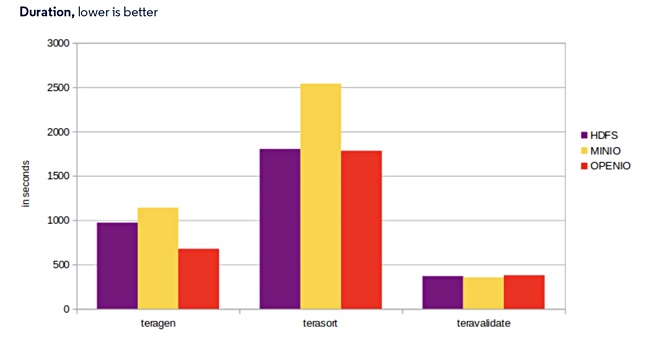This week’s digest covers file-sharing, flash, hyperconverged infrastructure, all-in-one storage, object storage, data protection and supplier responses to the Covid-19 pandemic. Dive straight in with Nutanix.
Nutanix China win
Nutanix software has been chosen to help to run more than 60 Tsingtao breweries in China.
Tsingtao had a general wish to upgrade its IT infrastructure and a particular need to support an intelligent retail business model. It is using Nutanix AHV systems to do this, plus the Enterprise Cloud OS and Prism Pro management software.
The focus is on on enterprise mobility management, risk management and financial accounting, content management system, business process management systems and manufacturing enterprise systems.
Nutanix remote working help
Nutanix helped JM Finn, a UK investment firm, to support remote working for all employees in response to COVID-19 – and did it in about a week. Jon Cosson, head of IT at JM Finn, said: “Our infrastructure was already completely virtualised which made a big difference in enabling remote work. … Our Nutanix private cloud infrastructure, which powers all of our workloads including VDI, played an integral part in keeping our employees safe and productive while working remotely.”
OpenIO is faster than Minio
Object storage supplier OpenIO says it as as fast as competitor Minio on the TeraSort benchmark and faster than HDFS;
It is on a par with Minio on the Random TextWriter and Wordcount benchmark. Both outperform HDFS.

HDFS is faster than OpenIO in the DFSIO benchmark, when using only a small number of small files. But, as the size of the datasets increases, OpenIO outperforms HDFS. This is especially true for very large datasets.
OpenIO claims these tests make it very clear that S3 object storage is now a credible primary storage solution for Hadoop. if your application manages a dataset of dozens of terabytes, as with Big Data use cases, you should consider OpenIO instead of Hadoop’s HDFS.
CTERA for DevOps
File-sharing cloud storage gateway supplier CTERA is supporting DevOps by making its products more manageable with a software development kit (SDK) for Python and Ansible automation.
CTERA’s software and devices enable global file sharing and access at endpoints ranging from single users to branch offices, via private or public cloud fabrics.
The CTERA SDK enables Python developers to create applications that use CTERA file storage. CTERA says these apps can scale to any size.
CTERA has made the Python facilities available so that an Ansible playbook can automate the provisioning of CTERA storage resources worldwide across multiple cloud providers. It says Ansible Collection embodies an infrastructure-as-code approach, meaning no scripting is needed nor any other programming.
The CTERA DevOps SDK and Ansible Collections are available on GitHub today under an open source license.
StorONE
The latest S1 Enterprise Storage Platform release from all-in-one storage supplier StorONE adds:
- S1:Tier: moves data across multiple tiers of storage; from high-performance Optane or NVMe flash to high-density SAS flash storage, like QLC, to hard disk drives and then to the cloud for long-term archive. There can be a separate resource pool for NVMe SSDs.
- S1:Snap: zero-impact, unlimited snapshots can tier older snapshot data to less-expensive hard disk-based or cloud storage. This lessens the need for a separate backup system.
- S1:Object: create a volume that supports object storage via the S3 protocol. Now a single S1-powered storage server can support high-performance (1 million +) IOPS storage running on top of fibre or iSCSI, cost-effective, high-capacity NAS or object storage via NFS, SMB or S3.
- S1:Replicate: provides asynchronous, semi-synchronous and synchronous replication of data from one StorONE system to another. Asynchronous replication acknowledges when the writes complete locally and to the local TCP buffer. The semi-synchronous replication setting acknowledges when data is written locally to the remote TCP buffer. Synchronous replication acknowledges when data is written locally and to the remote storage system.
With S1:Replicate Source and target storage clusters can have different drive redundancy settings, snapshot data retention policies and drive pool types. It means customers can have a less-expensive system at their disaster recovery site.
The company said last week it has the financial reserves to weather the COVID-19 pandemic.
Veritas
Veritas’ Enterprise Data Services Platform now includes:
- APTARE IT Analytics 10.4 has new regulation support for public sector environments, and reporting engine upgrades. It enables new data collection from NetBackup Appliances, Dell EMC Avamar 19.1, Dell EMC Data Domain 6.2, Dell EMC NetWorker 9.2.1, HPE Nimble, NAKIVO 9.1.1, and VMware ESXi 6.5. APTARE IT Analytics 10.4.1 also features additional supported languages including French, Chinese, Korean and Japanese.
- Backup Exec (BE) 21 has per-instance licensing, automated license updates, enhanced security to guard against ransomware. It has day-one support for vSphere 7.0 and vSAN 7.0, additional cloud regional support and broader physical support (CentOS 7.7 x64, Debian 10.0 x64, Oracle Linux 8 and 8.1, RedHat Enterprise Linux 8 and 8.1).
- Veritas SaaS backup adds support for Microsoft Dynamics 365 CRM, with protection for Azure, Dynamics 365 and Office 365.
- eDiscovery Platform 9.5 (eDP 9.5) introduces support for all major Web browsers, with legal holds and security enhancements. It has support for Enterprise Vault 12.5, Exchange 2019 and SharePoint 2016.
- Veritas EV.cloud now includes Veritas Advanced Supervision 2.0, bringing intelligence and analysis to data supervision for organisations targeting advanced cloud-based archiving with Microsoft Office 365 or Google Gmail for data governance. Updates allow for classification-driven sampling and searching to help customers restrict relevant content from view sets and ensure that content is included in classification.
Shorts
Amazon Web Services ECS (Elastic Container Service) now supports the Amazon Elastic File System (EFS) file system. Both containers running on ECS and AWS Fargate can use EFS. AWS says this will help customers containerize applications that require shared storage such as content management systems, internal DevOps tools, and machine learning frameworks.
AWS is introducing a new Snowball management platform, new IAM capabilities, and support for task automation.
VMware has announced the integration of its Site Recovery Manager (SRM) with Pure Storage’s FlashArray products with VMware vSphere Virtual Volumes (vVols).
Backup as a service startup Clumio has achieved Amazon Web Services (AWS) Storage Competency status for its enterprise backup service.
Forward Insights has ranked Kingston in first place in worldwide channel SSD shipments with 18.3 per cent market share, ahead of semiconductor manufacturers Western Digital and Samsung (16.5 per cent and 15.1 per cent, respectively). According to Forward Insights, almost 120 million SSDs were shipped in the channel in 2019.
ObjectiveFS 6.7 includes dynamic scaling of threads, small file performance speedup, faster performance when running with disk cache, EC2 Instance Metadata Service v2 (IMDSv2), S3 connection tuning, and more – including 350+MB/sec read and write of large files..
Entertainment and media object storage supplier Object Matrix and Signiant have announced improved workflow compatibility between MatrixStore and Signiant Media Shuttle, a de facto industry standard for sending and sharing large files fast.
OwnBackup is providing assistance to pandemic-strained healthcare organisations with an OwnBackup Gratitude package providing backup and security services free of charge. It integrates with Salesforce Health Cloud.
Pavilion, an NVMe-oF array supplier, has gained VMware vSphere 7 certification for its Hyperparallel Flash Array.
HCI supplier Scale Computing said Q1 2020 revenue reached a record, growing more than 30 per cent. It reports growth from local government and education customers where IT demands have skyrocketed due to the pandemic – that’s led to work-from-home/teach-from-home requirements.
StorCentric’s Retrospect is offering free 90-day subscription licenses for every Retrospect Backup product. There are no strings attached. The user can backup all of their data absolutely free for 90 days. If at the end of the 90 days, they no longer wish to use Retrospect software — they can still access, retrieve, and restore all of their backed-up data.
NVMe SSD tester SANBlaze has announced the availability of TCG Opal verification testing for NVMe SSDs.
SoftNAS has changed its name to Buurst. It intends to charge a price for its products that is not based on capacity. It announced $5m additional capital from its investor base, bringing total equity capital raised to $35 million. SoftNAS will remain a core product offering from Buurst and is available on the AWS Marketplace and Azure Marketplace.

Smart Modular Technologies has announced a higher density 16GB DDR4 Module-in-a-Package (MIP). The MIP is a tiny form factor design targeted for uses in IIoT, embedded computing, broadcast video, and mobile routers. It is available in two configurations, the standard 1Gx64 version or the two channels of x32 configuration to replace either soldered down DRAMs or SO-DIMMs.
Replication supplier WANdisco is donating its software to help researchers share and analyze big data to develop potential treatments and cures for COVID-19. I
Hybrid cloud data warehouse supplier Yellowbrick is providing free access to its cloud data warehouse to help aid researchers and companies actively working on a vaccine for COVID-19. Virtusa has teamed up with Yellowbrick to provide implementation consulting and access for its Life Sciences platform, vLife. Apply at www.yellowbrick.com/covid19/.
People
Acronis has hired Amy Luber as its Channel Chief Evangelist.
Quantum has hired James Mundle as global channel chief. He most recently served as VP of ww Channel Programs with VEEAM. Before that he was VP of w-w Channel Sales for Seagate’s Cloud Systems and Solutions business
Renaud Perrier, formerly Google’s former Head of Cloud ISV Partnerships, has become Senior Vice President of International Business Development and Operations at Virtru. The company has created TDF (Trusted Data Format); privacy technologies built on its data protection platform to govern access to data throughout its lifecycle – from creation to transmission, storage, analysis, and sharing.








